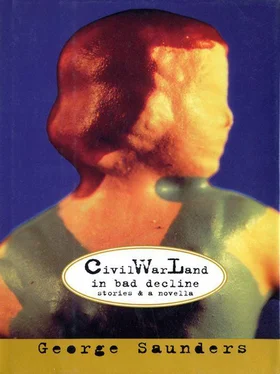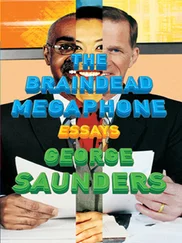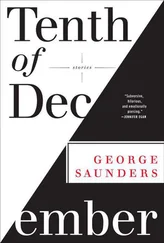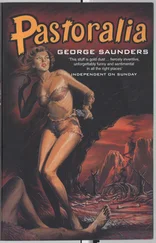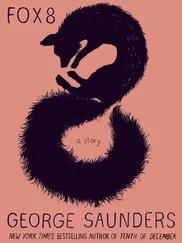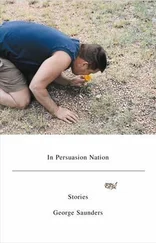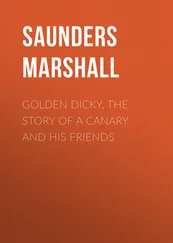For hours we head west, through Sandusky, Port Clinton, then Toledo, where in a public park militiamen hold back the dispossessed with firearms while emptying Hefty bags of bread crusts into a fountain for public consumption. We pass through Angola and Elkhart, through fields of torched corn, then Chicago, racked with plague, where corpses are piled high in vacant lots beside the tracks and Comiskey is now an open-air penitentiary, then across the plains, where solitary people dressed in sacks wander across the horizon, reminding me of my own cursed family. Sweet-smelling dust fills the car. The nation goes on forever. I never knew. When old people said plenty, bounty, lush harvests, I put it down to senile nostalgia. But here are miles and miles of fields and homes. Nice homes. Once it was one family per. Once the fields were thick with food. Now city men assigned residence by the government sit smoking in the yards as we pass, looking out with hate on the domain of hayseeds, and the land lies fallow.
On the morning of the sixth day a family gets on in a hop-smelling southern Illinois town. The bearded dad offers me sunflower seeds and briefs me on his child-rearing philosophy. Discipline and other forms of negativity are shunned. Bedtimes don’t exist. Face wiping is discouraged. At night the children charge around nude and screaming until they drop in their tracks, ostensibly feeling good about themselves.
“We ran the last true farm,” one of the kids screams at me.
“Until the government put us out,” the wife says softly. She’s pretty the way a simple white house in a field is pretty.
“Now we’re on the fucking lam,” says a toddler. Both parents smile fondly.
“We’re knowing America viscerally,” says an older girl while digging at her crotch with her thumb.
“Indeed,” the dad says. “My kids are at home on the American road.”
“It’s good for them not to be so staid,” the mom says. “Get out and breathe the air.”
“Live the life that’s being lived,” the dad says.
“Abandon the routines that conspire to force us into complacency,” says the mom halfheartedly.
“Think of the memories they’re accumulating,” the dad says.
“Still, it wasn’t a bad farm,” the mom says.
“Darn it,” the dad says. “Negativity, Ellie. Nip it in the bud. Remember? Forging self-love by creating a positive environment. Remember? They took our home but they can’t break our spirit?”
“Sorry,” the mom says. “I forgot. I mean, it was positive, because I was saying how much I liked our farm.”
“Never mind,” the dad says. “I love you so much.”
Still, he looks tense. He goes to the door and hanging his feet out tries to teach the kids “This Land Is Your Land.” The kids are busy leaning out of the speeding boxcar and lofting spit at little houses along the tracks.
“Nice shot, Josh,” the dad says. “You sure nailed that garage.”
“Shut up, Dad,” Josh says. “When you talk to me it screws up my concentration.”
“Sorry, buddy,” the dad says.
At Springfield a nutty-looking guy in a dirty flannel shirt gets on and immediately divides the boxcar in half with bales. On his cheek is a burned-in crucifix.
“Some serious privacy’s going to happen here or heads will roll,” he announces. “I’ve had it with interpersonal relationships.” Then he takes out a huge knife and sets it just inside his boundary. Even the wild kids shut up. He stretches out to sleep.
Once the kids get used to him, however, they resume shrieking. One little guy in coveralls keeps reaching across the border to touch the blade. Mom and Dad seem perplexed. To restrain or not to restrain? The blade looks sharp. But why risk quashing his natural curiosity?
I stay out of it. Another fifteen minutes and we cross the Mississippi.
The knife guy wakes up.
“Touch it again, you’re fucked,” he says to the kid, who’s about five. The kid’s eyes go wide.
“Just a minute,” the dad says. “That’s my son whose self-worth you’re bandying about. Don’t you remember what a special place the world was when you were tiny?”
“Don’t jack with me,” the knife guy says, “or I’ll be pleased to cut out and eat your whiny little heart.”
“Pshaw,” the dad says. “Sticks and stones, my friend. That kind of confrontational attitude does nothing but make me feel a lack of respect for you.”
“Keep talking, nimrod,” the knife guy says, “and I’ll have me a woman for free and a bunch of brats to toss off a moving train.”
“Hey now,” the dad says. “Hey now. Is that any way to talk to another human being?”
“Sam,” the mom says, “maybe we should just drop it. Maybe we should drop it and keep the kids on our side of the bales.”
“No, Ellie, I don’t think so,” the dad says. “My family is not something to be treated with disrespect.”
“We don’t want any trouble,” the mom says.
“No trouble at all,” the knife guy says, then picks up the knife and goes for the dad. I make a grab for his hand and the knife flies out the door. He tackles me and rolls me over and starts biting my neck. He’s strong and stinks and I can feel he wants to kill me.
Oh God, I think, now I did it, I’m dead.
“Fellows, fellows,” the dad says. “Violence doesn’t solve problems.”
“Help him, Sam,” the mom yells. “That nut’s going to murder him.”
“I’m not sure I can do that,” the dad says. “I can’t have the kids see me contradict my own moral system.”
“Dad,” one kid shouts, “get off your ass!”
“No,” the dad says gravely. “Someday you’ll understand, and respect me all the more for it.”
Meanwhile the loony’s biting deep into my neck and I’m starting to see stars. I panic. I thrash. Then we sail out the door and my head hits something metallic and I’m out like a light.
I wake up strapped to a stretcher propped against a dilapidated wet bar. Out a slit of a window is a duck on a tether near a mildewing empty built-in pool. Across the room a balding little man sits on the edge of a foldout bed, rubbing the feet of a hag sipping broth.
“Kenny,” she screams, “where are you? I said fish! You call this fish? Is this all the thanks I get, you trying to scrimp on my fish?”
“He’s an ass, Ma,” says the man on the edge of the bed. “You’d think with all you’ve done for him.”
In rushes another little balding man, identical to the first.
“Give her the damn fish, Kenny,” says the man on the bed. “She’s our mother, for crissake. Why try and starve her?”
“I doubt she’ll starve, Benny,” Kenny says, flinching. “That’s all you two do is eat. Eat and yell at me.”
From under the bedcover the woman smacks him with a length of wood. When he drops to one knee his brother knees him in the back.
“Benny, look who’s awake,” the mother says. “Our meal ticket.”
“Welcome back to the land of the living,” Kenny says kindly from the floor. “You had quite a lump on your noggin when I found you.”
“Good old Kenny,” Benny says dismissively. “Out wandering the tracks like an idiot.”
“We know all about you, mister,” the mother says. “We’ve had occasion to see you shoeless, Kenny and Benny and I.”
“Very ugly claws,” Benny says. “I almost blew chunks first time I saw them.”
“That is, until Ave noticed the dollar signs on them,” the mother says.
“What dollar signs?” Benny says dully.
“I don’t mean literal dollar signs, son,” his mother says. “I mean if we take this freak to Slavetown and sell him, we’ll be on easy street, and we can hire someone competent to care for us instead of Mr. Sieve-Brain here. And Mr. Sieve-Brain can go back to working at the slaughterhouse and we’ll be able to afford a radio and an occasional night out, like every other family on the block. But we won’t invite Mr. Sieve-Brain out with us.”
Читать дальше
